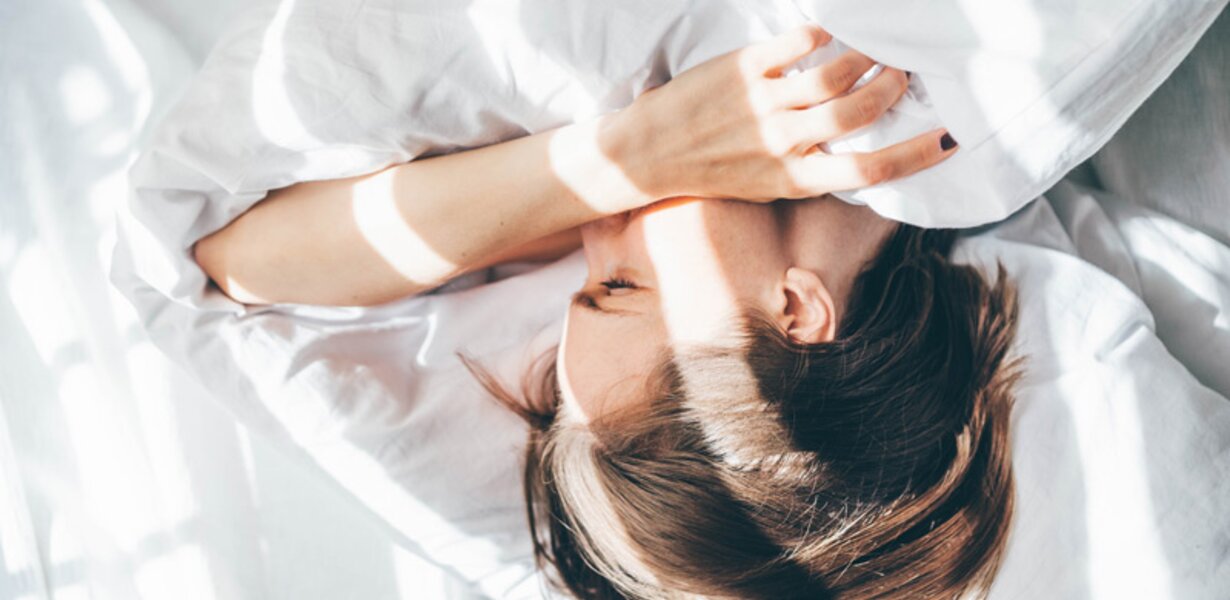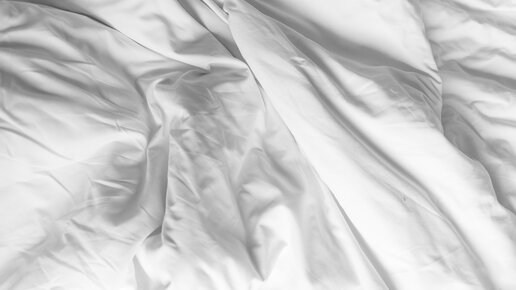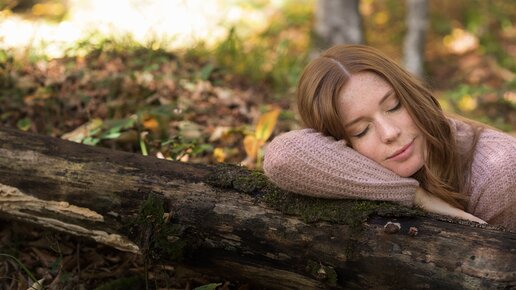Melatonin – the sleep hormone that makes us “ready for bed” can be used as a food supplement before bed and is the ideal travel companion on holiday. Find out here what melatonin does, how it is best taken and much more.
What is melatonin?
It’s the natural substance that sends messages to your brain to regulate your sleep pattern and set your internal clock.
Where is the hormone produced?
Melatonin is mainly formed in the pea-sized pineal gland of the brain using two main ingredients – the happiness hormone serotonin and darkness. Because it is only when it gets dark that the body begins to convert serotonin into the sleep hormone melatonin. In daylight the production of melatonin comes to an almost complete stop.
What does melatonin do? And what role do cortisol and serotonin play?
Melatonin function – the sleep hormone from which dreams are made.
Melatonin, also known as the sleep hormone, naturally controls the sleep-wake rhythm. When twilight starts, the level of melatonin in the blood begins to rise, with the peak usually being reached at around three o'clock at night. For the body, the melatonin increase is the signal that it has to make itself “ready for bed”. Body temperature, breathing, attention and other physiological processes are switched to night mode. You feel sleepy and ready for bed.
Cortisol – this hormone blows the wake-up call.
In the early hours of the morning, the natural counterpart of melatonin, the stress hormone cortisol, starts to get to work and slowly cranks up the awakening process. Normally, once the hormone carousel is up and running correctly, the cortisol level drops once again in the evening and melatonin takes over the reins. But not if stress becomes a habit. With chronic stress, cortisol increasingly circulates in the bloodstream even at late hours and interferes with the sensitive hormone balance. Because cortisol does not want to give way, it exerts an inhibitory effect on melatonin at the same time. It’s no wonder that for many constantly stressed people sleep problems are pre-programmed.
Serotonin – the wakefulness hormone with the good mood factor.
During the day, natural sunlight and daylight stimulate the formation of the “wakefulness hormone” serotonin. Serotonin, which is widely known as the happiness hormone, not only makes you feel awake, it also fills you with a good mood, stokes your sense of well-being and gives a boost to your vigour. At the same time, serotonin serves as the starting substance for nocturnal melatonin. Scientists therefore suspect that people who fill up with daylight and sun outdoors – and thus stimulate their serotonin formation – can sleep better at night.
Low melatonin production
The melatonin concentration in the body is not always at a level that is right for a good night's sleep. The reasons for this can be different in nature and depend on factors such as day and season, age or current lifestyle.
Causes
- Advanced age
- Lots of artificial light with a high blue content
- Consumption of a lot of caffeine, alcohol, nicotine
- Jet lag, shift work
- Hormonal changes during menopause
- Long periods of daylight (summer)
- Chronic stress
How can you measure your melatonin level?
People who suffer from insomnia can have their body’s melatonin level measured using a special saliva test. Since melatonin concentrations naturally fluctuate greatly throughout the day, the time of day plays a key role in sampling and in interpreting the values.
Parameter | Substrate | Reference value | Description |
Melatonin | Saliva | Reference value depends on the time of day | Daytime (8 am): around 5 pg/ml |
What should you do if your melatonin levels are low?
Light on: Light is an important control instrument for our circadian rhythm. If we lack light during the day, our inner clock can get out of sync more easily. It is therefore all the more important to “recharge” our natural light stocks during the day. This not only gives a boost of freshness, it also stimulates the formation of the melatonin precursor serotonin.
Light off: While full light shouldn’t be avoided during the day, complete darkness is recommended when sleeping. Even the slightest light stimulus – whether an alarm clock with LED display or the reflection of a far-off street lamp – can inhibit melatonin production. In this context, the blue light from tablets, smartphones, etc. in the hours before bed is also considered particularly counterproductive. Those who still do not want to do without them should use a blue light filter or operate the devices in night mode only when using them in the evening.
Relaxation:People who are still very active or stressed in the evening find sleep more difficult. This is due to the stress hormone cortisol, which blocks melatonin production. Therefore, the evening should be completely focused on relaxation. By taking an evening walk you can not only relax, but also promote healthy sleep. Relaxation exercises, a warm bath (max. 38 degrees, 10-20 min.) or light reading in bed make it easier to drop off to sleep. On the other hand, exciting films or lively discussions should not be on the programme in the evening.
Diet: An old-fashioned home remedy for sleepless children is a glass of (plant) milk with honey. Sleepless adults can also benefit from targeted nutritional supplements that support the nervous system and the time it takes to fall asleep through their selected composition.
Melatonin as a nutritional supplement
The body’s own substance melatonin is now also available as a nutritional supplement. Taken before bedtime, 1 mg can help reduce the time it takes to fall asleep. When travelling across several time zones, it also helps to alleviate the subjective feeling of jetlag – an ideal addition to your luggage for your next holiday.
Melatonin in spray or drop form?
Melatonin in spray or drop form is the ideal pharmaceutical form for people who do not like swallowing capsules or who already have a lot of tablets or capsules to take. Many people also find it easier to take preparations if they taste nice. Nevertheless, it is important to keep an eye on the list of ingredients and to choose products that are as free from unnecessary additives as possible.
Melatonin tablets, gummies and capsules
Melatonin is also available on the market as tablets and capsules. The big plus of melatonin capsules is that it is usually easy to avoid additives with this method of administration, and it is also easier to combine with other suitable micronutrients in capsules. Nowadays, gummies with melatonin also make falling asleep a piece of cake. With these products, make sure you choose the highest possible quality and sugar-free composition.
Questions about melatonin
Why is sleep so important to us humans?
Even though the body appears to be idle in sleep, remember that appearances are deceptive! The brain, for example, is almost as active during this resting phase as when you are awake. It ensures that all your bodily functions are running in night mode, it stores what you have learned, processes what you have experienced and creates space for new things by removing clutter. In addition, sleep helps the organism to save energy, it is a time when cells are repaired or renewed and it is important for a well-functioning immune system.
Those who have ever been deprived of sleep probably experienced first hand the enormous influence of sleep deprivation on their physical and mental well-being. A single night without sleep leaves us pale and wilted. We feel uncomfortable and sluggish, have problems with concentration and seem mentally unfit. The longer the lack of sleep lasts, the more irritable and moodier we become. And over a shorter or longer period of time, other bodily functions also become confused.
What inhibits melatonin?
Sleep like a baby. Many adults envy the youngest among us, who slumber in the presence of light and noise. While the sleep-wake rhythm of babies is generally subject to other rules of play, the highest nightly melatonin level is actually reached at toddler age. The effectiveness of melatonin formation decreases with age. Especially in the elderly, the night-time melatonin peak tends to plateau quite considerably. In addition to age-related decline, alcohol, caffeine and artificial light with a high percentage of blue light all reduce the production of melatonin. Moreover, long-distance travel and shift work can also completely upset your melatonin balance. Typical signs of a melatonin imbalance are, for example, problems with falling asleep and staying asleep, fatigue, and greatly shortened dream phases.
Want to know more about this topic? Then continue reading here.
Which foods contain melatonin?
Melatonin is not only formed by the body. The natural substance also occurs in small quantities in certain foods. Cranberry boasts the highest content. Other sources of melatonin also include certain types of fungi (e.g. chanterelles, champignons and porcini mushrooms), some cereals (e.g. barley, oats, rice), pistachios, peppers and dried tomatoes.
When can a melatonin supplement be useful?
Melatonin, problems falling asleep and the question of whether the sleep hormone can make you dependent.
Sleep – one of the most natural things in the world – is anything but natural for many people. According to the Austrian Society for Sleep Medicine and Sleep Research (ÖGSM), about a quarter of Austrians can only dream of a good night's sleep. Some people do not sleep or find it extremely difficult to sleep. If you are tired of counting sheep, you can try melatonin in the form of a dietary supplement. The sleep hormone tunes the mind and body to bedtime. If consumed just before bedtime, melatonin can help to reduce the time it takes to fall asleep. According to current knowledge, melatonin does not have a habituation effect or run the risk of dependency.
Melatonin in menopause.
The female middle years are characterised by hormonal changes. The levels of many chemical messengers decrease during menopause – including the sleep hormone melatonin. At the same time, many women are plagued by sleep problems, which, among other factors, also promote the drop in melatonin. Women who are tired of sleep deprivation can find support in a melatonin supplement. The sleep hormone can help you to find sleep.
Melatonin and jetlag.
Long-distance travel can be balm for the soul. However, your internal clock can get out of sync when crossing multiple time zones when your circadian rhythm no longer matches that of your new environment due to the time shift. You feel tired, weak and unfocused – quite simply “jet-lagged”. Melatonin is an insider tip to alleviate the subjective feeling of jet lag. Consumption at the start of the trip and on the first days of the holiday before bedtime is recommended, so that you can enjoy your well-deserved holiday from the start.
Can melatonin be taken daily?
Melatonin preparations can supplement our body’s own melatonin. If you follow the recommended dose, melatonin can be taken daily. According to current knowledge, no dependence or habituation is to be feared from this. Anyone who wants to use melatonin in the long term or who is also taking medication should still consult a doctor.
Dosage: How much melatonin for sleep?
Just 1 mg of melatonin helps to shorten the time it takes to fall asleep. The melatonin preparation should be used shortly before going to bed (approx. between 9 p.m. and 11 p.m.).
How long does it take for melatonin to shorten the time it takes to fall asleep?
Each person responds differently to melatonin supplements. However, some users report that falling asleep is easier for them after a few days.
Can melatonin also help escape winter fatigue?
When nature gently lies down to rest and animals enter hibernation, winter fatigue is often experienced by humans. Due to the lack of daylight, more melatonin circulates in the blood on winter days and so disturbs the internal clock: You are tired during the day and cannot sleep well at night. Therefore, it is important to use the few hours of brightness in winter to maintain the hormones of the sleep-wake rhythm in their natural balance. A short winter walk, ideally at noon, is sufficient to stimulate serotonin production and inhibit the sleep hormone. At the same time, a change of scene and a breath of fresh air really stimulate the senses.
FAQs
Literature with the author.






